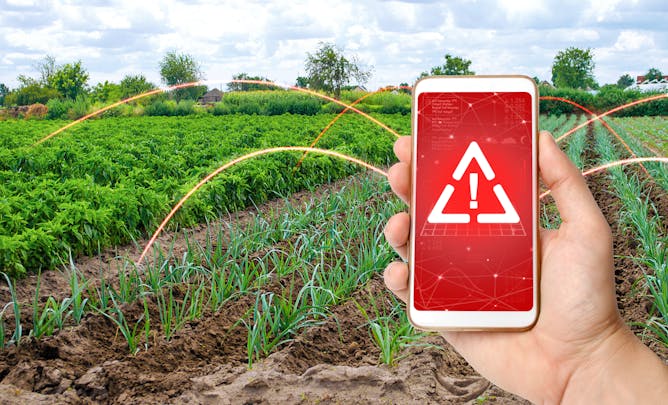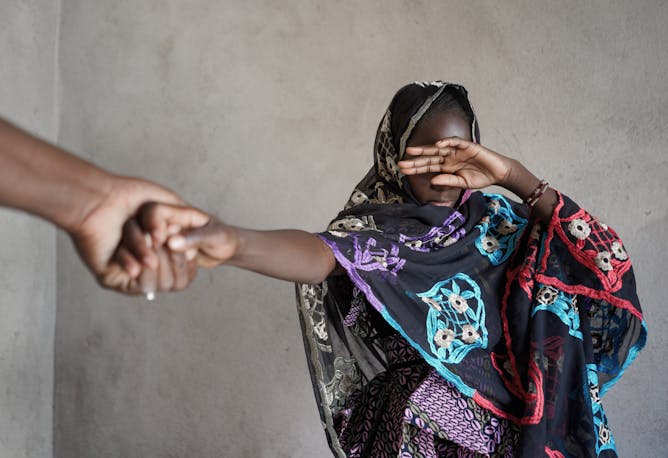|
Today, Nigeria will roll out the drums to mark 62 years of independence. But the mood won’t be festive. At best, the tone will be of suppressed pessimism. It’s not hard to fathom why. Major statistics in the areas of the economy, security and human capital development show a country in despair. At The Conversation Africa, we have been working with academic experts to explore the challenges facing the country, and the search for solutions. Doyin Odubanjo provides
the background to five essential reads.
This is a tough time to be owing money. Central banks across the world have been raising interest rates. African countries haven’t been exempt. This has implications from a personal finance perspective because higher rates translate to higher debt repayments. But, as Bomikazi Zeka argues, the best time to fix the roof is indeed while the sun is still shining. She spells out five useful steps you should consider taking to manage the impact of higher interest
rates, and advocates that you take them before the economic situation goes from bad to worse.
Plants aren’t just beautiful - they’re clever, too. Some plants have evolved traits to protect themselves against the harm caused by toxic metals that seep into soil and threaten plants’ very cell structures. Marshall Keyster explains the lessons he and other scientists are learning from these smart plants in their quest to make agricultural crops hardier and less vulnerable to heavy metals.
|

|
Adejuwon Soyinka
Regional Editor West Africa
|
|

Doyin Odubanjo, Nigerian Academy of Science
Experts explain why there might not be much to celebrate and proffer solutions.
|
|
|

Ayo Olukotun, Olabisi Onabanjo University
If Nigeria’s public office holders behave, there’s no reason why the country can’t progress.
| |

Abiodun Fatai, PhD, Lagos State University
Nigeria must strengthen its democratic institutions and improve governance for economic development.
|
|
|
|
|

Bomikazi Zeka, University of Canberra
The time to fix the roof is while the sun is still shining. Before the economic situation goes from bad to worse, the impact of rising interest rates can be mitigated in a combination of ways.
|

Marshall Keyster, University of the Western Cape
Plants have evolved several ways to deal with heavy metals that might otherwise poison or kill them.
|
Health + Medicine
|
-
Mosoka Fallah, University of Liberia
When tackling an Ebola outbreak speed is a critical element - every hour counts.
-
Emeka Dumbili, Nnamdi Azikiwe University
People in Nigeria are creating new drugs either because they can’t afford more traditional narcotics, because they’re not controlled or because they’re strong.
-
Akanni Ibukun Akinyemi, Obafemi Awolowo University; Akinrinola Bankole, Guttmacher Institute; Melissa Stillman, Guttmacher Institute; Onikepe Owolabi, Guttmacher Institute; Temitope Erinfolami, Obafemi Awolowo University
In the context of Nigeria’s restrictive abortion laws, promoting access to medication abortion drugs is a life saver.
|
|
Education
|

Sathiya Susuman Appunni, University of the Western Cape
Though child marriage rates are declining globally, the practice remains worryingly common in some African countries.
|
Environment
|
-
Emmanuel O. Akindele, Obafemi Awolowo University
The ability of the Osun River to support biodiversity is being threatened by pollution and can only be rescued if the contamination ends.
-
Rod Crompton, University of the Witwatersrand; Bruce Douglas Young, University of the Witwatersrand
The key to reducing green hydrogen costs in the future lies mainly in technological improvements.
|
|
Business + Economy
|

Omowumi Iledare, University of Cape Coast
Insecurity of assets and life with declining capacity for technical and market production are responsible for Nigeria’s low crude oil production.
|
|
|
-
Iddrisu Mohammed Kambala, University of South Carolina
Ghana’s northern region would be more developed now had it received a fairer share of colonial investments.
-
Jonathan Munemo, Salisbury University
Africa must focus on building strong alliances with advanced economies to mitigate the steps being taken by the European Union and US.
|
|
Politics
|

Anthony Kaziboni, University of Johannesburg
Scapegoating immigrants will not result in significantly improved healthcare service provision, reduced crime or less unemployment.
|
|
|
-
Wilfred Nasong'o Muliro, Technical University of Kenya
Kenya’s new president needs to forge closer ties with regional heavyweights to create a balance of power that favours his country.
-
Mark Deng, The University of Queensland
A way forward is for the national government of South Sudan and Unity State government to work together to address the crisis.
|
|
| |
|
|
3 - 4 October 2022
•
Bloemfontein
|

|
3 - 27 October 2022
•
Johannesburg
|

|
4 October 2022
•
Cape Town
|

|
8 October 2022
•
Johannesburg
|

|
|
|
|
| |
| |
| |
Would you like to republish any of these articles?
|
|
It’s free to republish, here are the guidelines.
Contact us on africa-republish@theconversation.com in case you need assistance.
|
| |
| |
| |
| |
|
|